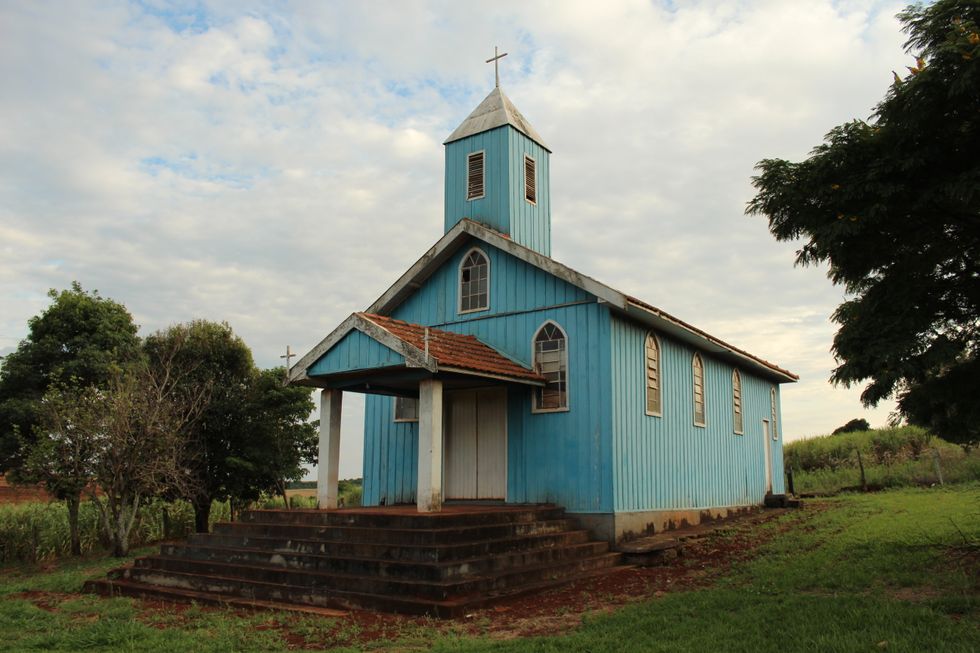I never knew if the people of Rocha, Nicaragua really cared about the latrines.
We made the hike to their tiny mountain village around six am so we'd arrive by breakfast which was usually the same as lunch and dinner, rice and beans. They called it Gallo pinto, the national dish of Nicaragua. You've never had rice and beans until you've had gallo pinto. The beans are creamy but not refried. Somehow they retain the structure of the pinto beans when they cook them, but they're thrown in with the rice and cooked over an open flame until beans char at the bottom, giving the whole pot of food that crusty, delectable texture you might get on the outside of a steak. However, Reyna had harvested a few eggs that morning for such a special occasion. After today, the whole community of around two hundred people wouldn't have to share one shoddy outhouse or the forest behind their dwellings anymore since we'd be digging four new latrines around the village. That called for breakfast burritos of course, buttery fried and scrambled eggs that they had sacrificed from their only five chickens, wrapped in homemade corn tortillas and pressed in a pan over an open flame. We still had Gallo pinto on the side.
Digging latrines is hard work, the kind of work you only do if you're convinced you're being a hero, helping those in need when you're really just satisfying your own ego and lying to yourself about it. There's a reason they only had one latrine in that town. One, relieving oneself outside was deemed satisfactory, and two, it required so much digging, Stanly Yelnats would have chosen to shit in the woods and wipe with poison ivy ten times out of ten, but not much is stronger than a humanitarian on a mission so we proceeded, with the help of several young men in the town, none of whom spoke the slightest bit of English.
Luckily, hand signals and basic human gestures of communication were enough to dig four six foot deep holes and fill the inside with layers of stones ascending from big stones at the bottom up to gravel, creating a natural filter. It was primitive but efficient. The men and women of my group formed a makeshift assembly line passing the stones along and slowly lowering them down into the hole where the Nicaraguan men knelt and meticulously fitted them together. We carried on like that for a few hours until the sun was high in the sky and the heat began to slow our pace.
There is no optimal season for manual labor in Nicaragua, a country that runs on it. We arrived in the throes of the dry season in March, when the sun's heat is the greatest and the ground is so dry that it feels like one is constantly breathing dust. However, work is all but impossible in the rainy season. Although the rain brings cooler weather, the ground becomes a permanent sludge. Dry season it was.
We had just decided to take a break on the verge of heat stroke when the little girl in the perfectly cleaned and pressed pink dress showed up in front of us and said "Iglesia" while beckoning with her tiny, outstretched hand. Nobody heard her approach.
We stared in awe. Maybe it was her dress, bright pink and stainless against the dusty, brown heat or maybe it was because she was alone. A five-year-old girl had walked apparently of her own accord up to us and was repeating "Iglesia" to what was probably the first white person she'd ever seen. Just then the music started and I took her hand. She led me down a dirt path overgrown with roots and rocks. She navigated the path adeptly with muscle memory while I focused on every step. The music grew louder. I could hear a guitar and something that sounded like an accordion, but rising above the instruments was a wailing voice. I did not understand the language, yet I understood everything. The wailing was celebratory yet melancholy, loud and soft at the same time, praising and haunting all in one. The music stopped and the building came in to view.
Sitting in a small valley, in the very center of the village was a pastel blue, one room, stucco building with a white cross sitting atop it's pointed roof. The doors were flung wide open and inside sat every last member of the community in rows of shoddy wooden benches while a tall thin man began singing again on the raised platform at the front of the room. The girl in the pink dress led me with her hand to a seat on a bench next to her and we said nothing. We both smiled as the band up front began crescendoed again.
I still don't know if the people of Rocha really needed those latrines. I don't think they needed much of anything at all.

















